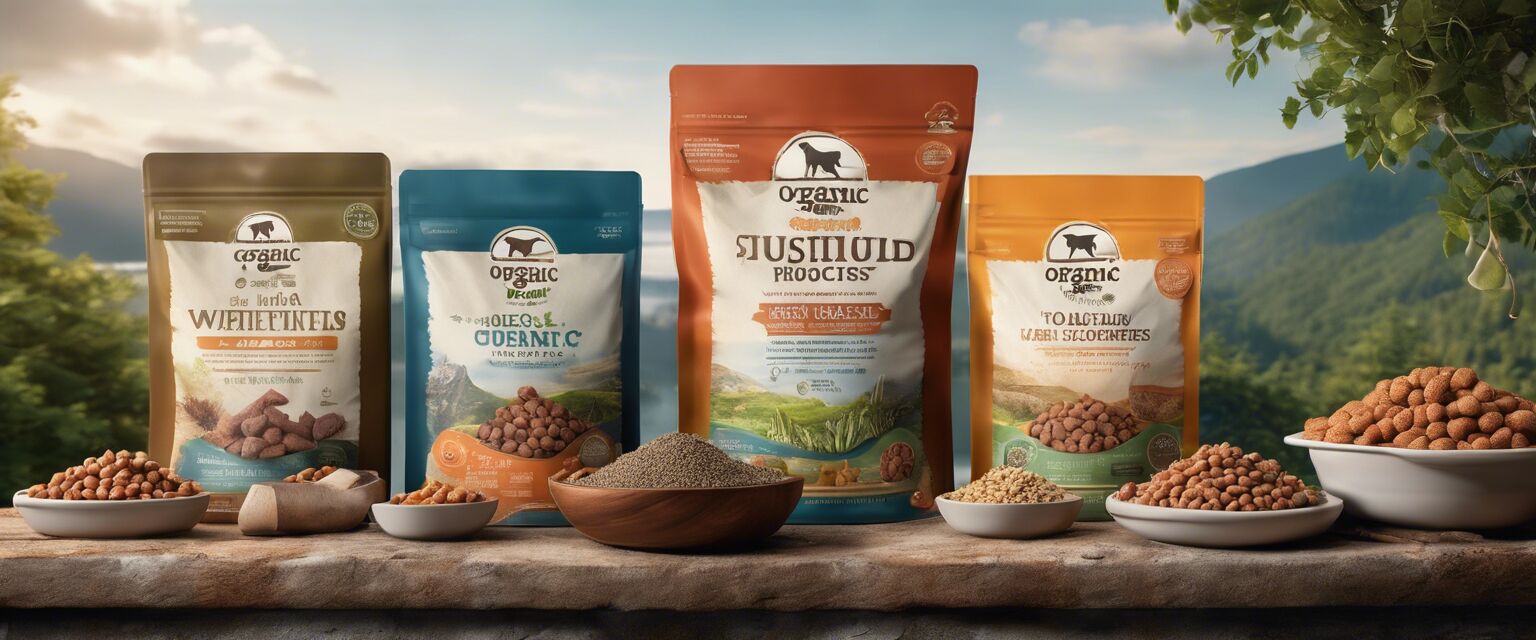
Organic Dog Food for Allergies
Key Takeaways
- Organic dog food can help manage common allergies in dogs.
- Identifying allergen sources is essential for selecting the right food.
- Look for limited ingredient diets for sensitive dogs.
- Consult your veterinarian for tailored dietary advice.
When it comes to managing allergies in dogs, choosing the right food is crucial. Organic dog food is becoming increasingly popular among pet owners who want to provide their furry friends with a nutritious diet while minimizing exposure to allergens. This article explores various organic dog food options suitable for dogs suffering from allergies, along with important considerations when selecting the right food.
Understanding Dog Allergies
Dog allergies can manifest as skin irritations, gastrointestinal issues, or respiratory problems. Common allergens include:
- Food ingredients (like grains, dairy, and certain proteins)
- Pollen and dust mites
- Flea saliva

Choosing the Right Organic Dog Food
When selecting organic dog food for allergies, consider the following factors:
1. Limited Ingredient Diets
Limited ingredient diets contain fewer components, making it easier to identify allergens. Look for products with:
- Single protein sources
- No fillers or artificial additives
- Whole foods as ingredients
2. Grain-Free Options
Many dogs are sensitive to grains. Grain-free dog food can be beneficial for these pets. Options include:
- Pea protein
- Potato or sweet potato
- Legumes
3. Protein Sources
Common protein sources include:
- Chicken
- Beef
- Fish
- Vegetarian options
Top Organic Dog Food Brands for Allergies
Here are some popular organic dog food brands known for their allergy-friendly options:
| Brand | Type | Key Features |
|---|---|---|
| Brand A | Grain-Free Dry Food | Limited ingredients, single protein source |
| Brand B | Wet Food | Organic veggies and proteins, no fillers |
| Brand C | Raw Food | Minimal processing, high nutrient value |
| Brand D | Puppy Food | Specially formulated for sensitive stomachs |
How to Transition to Organic Dog Food
Transitioning your dog to organic food should be done gradually. Hereâs how:
- Start by mixing a small amount of the new food with your dog's current food.
- Gradually increase the proportion of organic food over a week or two.
- Monitor your dog for any signs of allergies or intolerance during the transition.
Tips for Managing Dog Allergies
- Consult your veterinarian for allergy testing.
- Keep your dogâs environment clean to reduce allergens.
- Consider supplements like Omega-3 fatty acids for skin health.

Conclusion
Choosing organic dog food for allergies can significantly improve your dog's quality of life. By understanding their dietary needs and opting for high-quality ingredients, you can help manage their symptoms effectively. Always consult with your veterinarian to ensure you're making the best choices for your furry companion.
Pros
- High-quality, natural ingredients
- Reduced risk of allergens
- Better digestion and overall health
- Support for sustainable farming practices
Cons
- Higher cost compared to regular dog food
- Limited options for certain dietary needs
- Possible adjustment period for dogs
Explore More
To learn more about selecting the right dog food, check out our other articles on:







